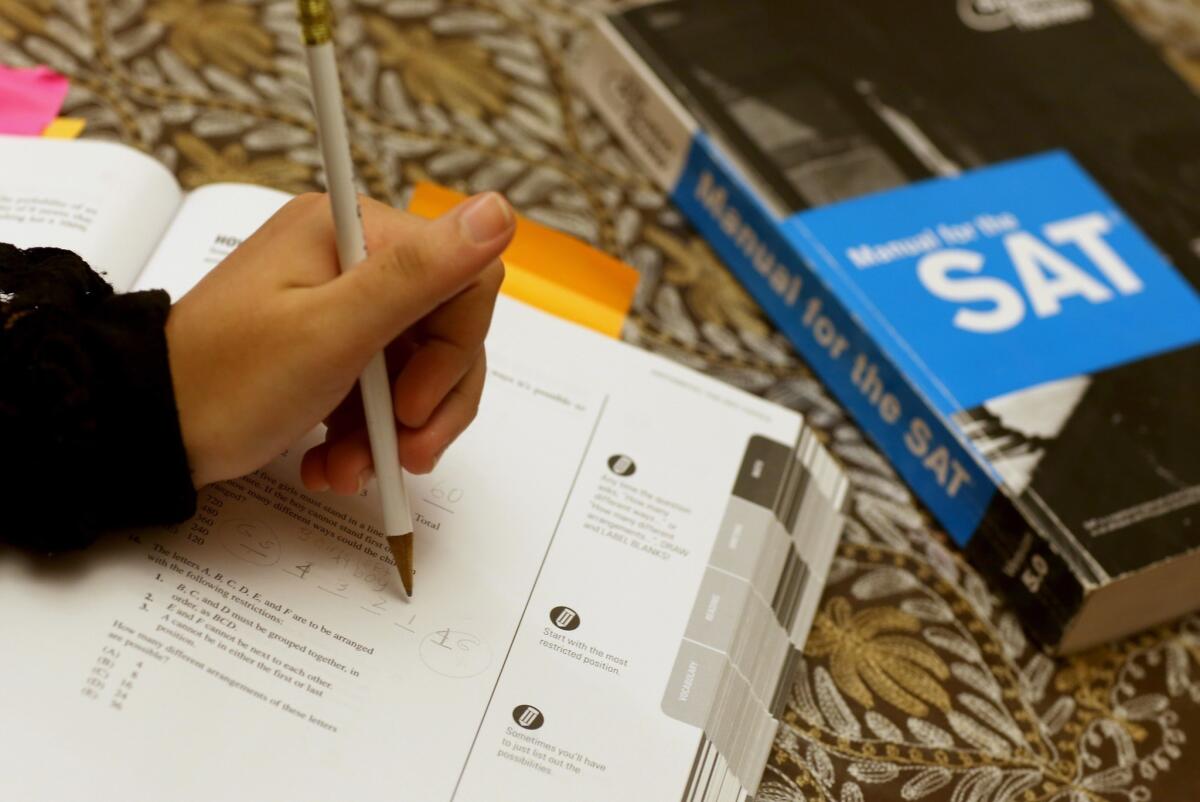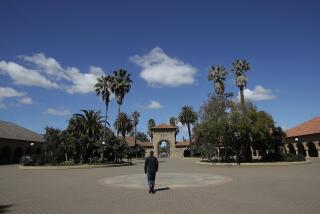Letters to the Editor: The problem isn’t the SAT. It’s K-12 schools that fail to prepare students

To the editor: You report that University of California Provost Michael Brown objects to the SAT and ACT because they “compare students against one another in a way designed to produce high and low scores” and prefers “tests that measure students by how much they’ve mastered prescribed academic content.”
Alas, Brown is playing word games to avoid inconvenient truths. As long as there are more applicants than spots in the entering class, all admissions processes are comparisons, and all useful tests will show variation among students.
While tests should not be the sole basis for admissions, studies show they have real predictive validity and should indeed be part of admissions processes. Pretending that all students can handle the same challenges helps nobody reach his or her full potential. Students with different preparation should attend universities that cater to different needs, and social policy should address the K-12 and home environments that result in unequal preparation for tests like the SAT and ACT.
Alex Small, Pomona
The writer is a professor of physics at Cal Poly Pomona. The opinions here are his own.
..
To the editor: There has been much talk of how colleges’ use of SAT scores places underprivileged applicants at a disadvantage. The assumption is a student cannot perform well on these tests without expensive tutors and prep classes.
This is a complete falsehood, as the College Board, which owns the SAT, makes practice tests and preparation materials available through Khan Academy for everyone to use free of charge. The only thing required is internet access (available at public libraries) and the discipline to study hard for these tests.
My child did just that, preparing for the SAT only through free materials available on the internet to everyone. I’m proud to say he achieved a perfect SAT score the first time he took it. But since he goes to a public high school on the Westside, the assumption will likely be that he benefited from expensive tutoring even though he didn’t spend one penny on tutors or review courses.
Individuals who aren’t from underprivileged backgrounds work hard too and deserve to be recognized by colleges for these efforts.
Melissa Moon, Beverly Hills
..
To the editor: California developed an excellent system of community colleges and state universities for those who did not qualify for UC upon high school graduation. Generations of students received good educations, and many transferred to UC with success under this system.
Why potentially impact UC quality when these superb alternatives exist? Political correctness, I suspect.
David Sievers, Encino
More to Read
A cure for the common opinion
Get thought-provoking perspectives with our weekly newsletter.
You may occasionally receive promotional content from the Los Angeles Times.










